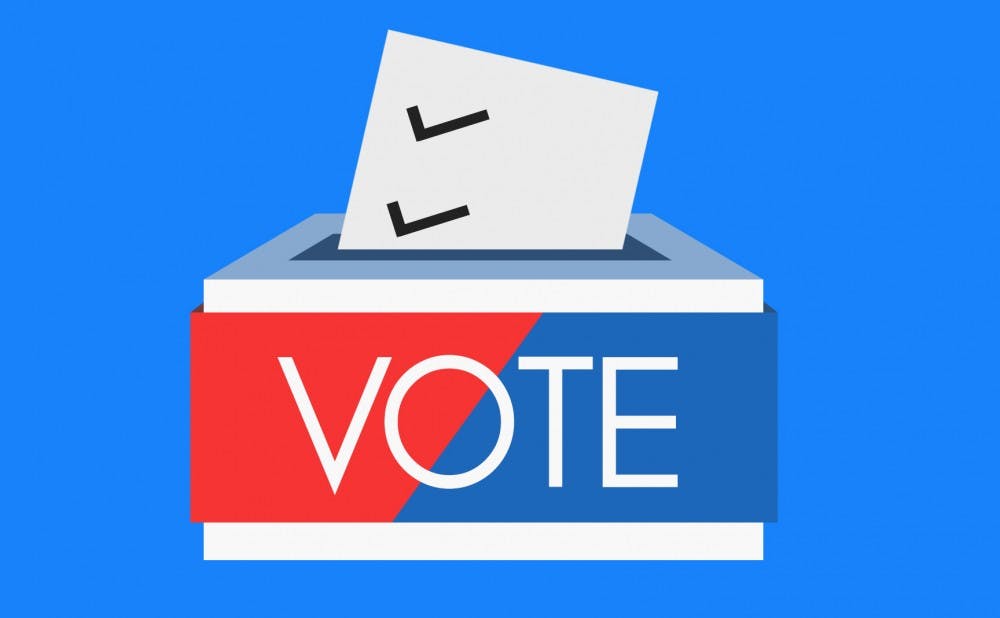At the ballot box in November 2018, North Carolina voters approved a constitutional amendment to require photo identification for future elections.
Duke's current student ID didn't meet the standards imposed by the subsequent law, so the University is making a new option for students who want to use Duke-issued cards to vote.
"Students who want the card will have to agree to have their identity verified according to the law, will have their picture taken by the University and will receive the card in time to vote in the 2020 election," Michael Schoenfeld, vice president for public affairs and government relations, wrote in an email.
As a result, beginning in 2020, Duke students without other legally acceptable forms of identification and who wish to use a Duke ID to vote in North Carolina will have the option to obtain a "Duke Voter ID card" approved by the Board, which would only be valid for voter identification purposes and not for any other Duke transactions.
Duke students will be able to use a form of student IDs to vote in the upcoming 2020 election, but some students in the University of North Carolina system will not. Other schools like Elon University, however, have used the same provision as Duke to have a separate voter ID card approved.
"The requirements mandated by the voter ID law would have been impossible to implement with the current Duke Card, but we are utilizing a provision of the law that permits colleges to issue a separate ID card that is only valid for voter identification so that Duke students will be able to full participate in the civic life of the community, state and nation by voting," Schoenfeld wrote.
On March 15, the North Carolina State Board of Elections determined which ID cards from government agencies, universities, community colleges and Native American tribes met the security standards outlined by the state's new photo voter ID requirement law.
In total, 81 colleges and universities in North Carolina submitted an application to have their student and employee IDs approved for voting. Of these schools, 72 were approved. But IDs for either students, or both students and employees, at 12 of the 17 UNC system universities—including UNC Chapel Hill—were rejected.
The law resulted from the state voter ID constitutional amendment approved by 55% of voters back in November.
"What we know now is that the problem about faking votes in the system has way more to do with absentee ballots than this whole issue of fake voter IDs," said Pope McCorkle, professor of the practice in the Sanford School of Public Policy. "The idea that there are lots of people who are willing to go to the polling places, fake their identities and put their votes in was always on the ludicrous side of things."
In a statement explaining the reasons for some of the rejections of the types of identifications, Kim Strach, executive director of the North Carolina State Board of Elections, said that requests were rejected under the voter ID law if the ID photo was not taken by the school or a contractor.
Another standard of the law that proved a barrier for some institutions required that the IDs be issued after confirming the student or employee's social security number, citizenship status and birthdate during the enrollment or employment application process. Or, ID cards issued after enrollment must have a way to confirm the owner's identity, which can include but is not limited to these options.
Based on the current law, rejected institutions cannot reapply for approval until after the 2020 presidential election. Strach said she hopes changes would be made to the laws so that more ID cards could be approved before the 2020 election.
Lawmakers did vote to delay the start of photo ID requirements until the 2020 elections. Therefore, photo IDs will not be required for any of the elections this year, including the special elections in the 3rd and 9th congressional districts.
"It is my desire that every student and employee of eligible institutions will be able to use their student or employee ID to vote," Strach said in the statement. "However, the State Board of Elections is bound by the language of state law, which does not allow discretion to approve applications from institutions that do not attest to the statutorily required criteria."
Get The Chronicle straight to your inbox
Sign up for our weekly newsletter. Cancel at any time.

Mona Tong is a Trinity senior and director of diversity, equity and inclusion analytics for The Chronicle's 117th volume. She was previously news editor for Volume 116.

